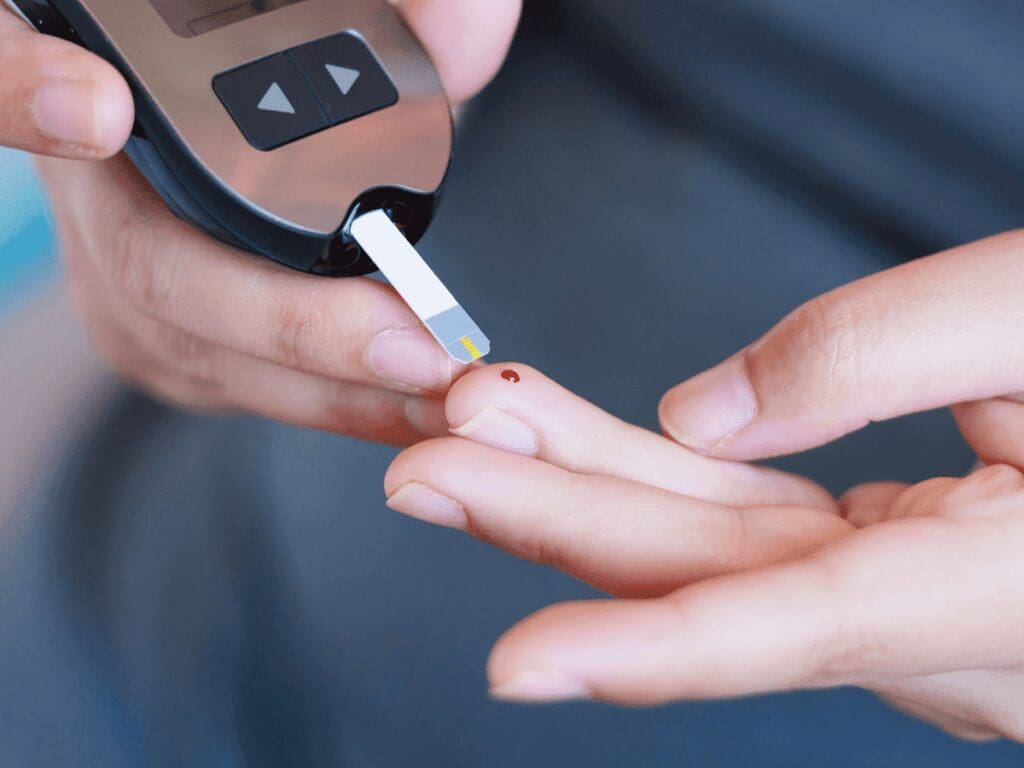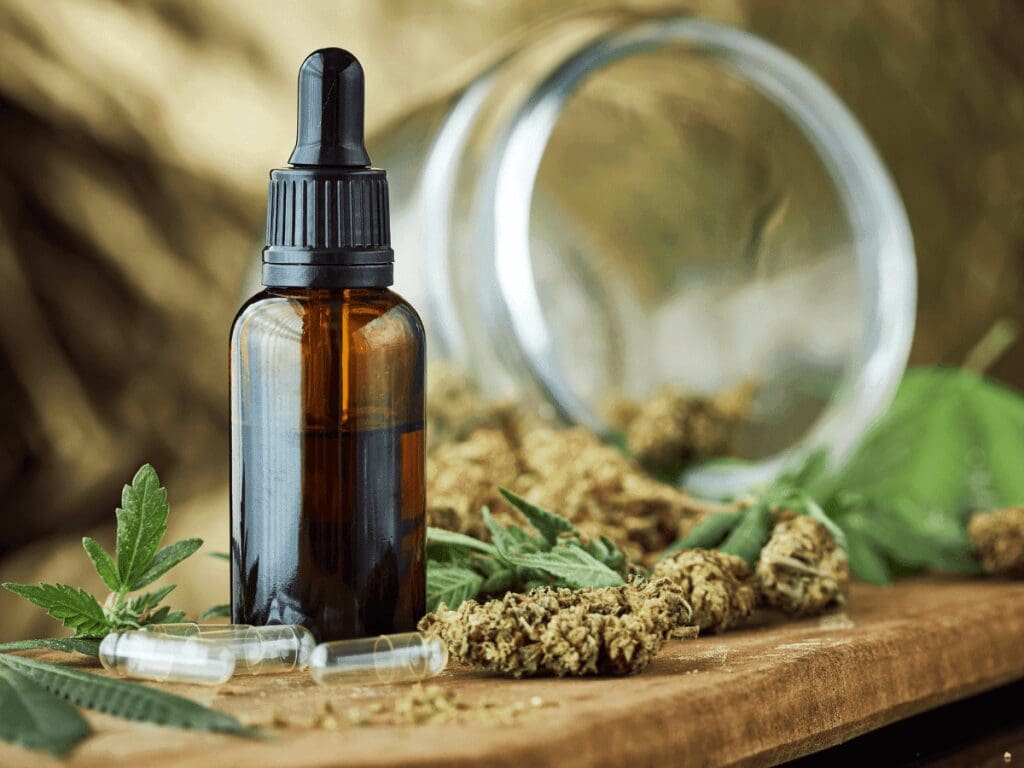Key Takeaways:
- Promising Yet Preliminary Research: Current studies, primarily in animal models, suggest CBD’s potential in reducing hyperglycemia due to its anti-inflammatory and antioxidant properties. However, definitive conclusions cannot be drawn until more extensive human studies are conducted.
- Consult Healthcare Providers: Individuals interested in exploring CBD as a supplementary treatment for diabetes should always consult with healthcare professionals to understand potential interactions with other medications and to determine an appropriate approach tailored to their specific health needs.
- Regulation and Quality Concerns: Due to the lack of regulation in the CBD market, it’s essential for consumers to be informed about the things you should know about when purchasing products. They should exercise caution by choosing reputable sources that provide transparent information about the source and purity of their CBD.
The increasing focus on Cannabidiol (CBD) within health and wellness sectors highlights its potential for managing chronic conditions such as diabetes, sans the psychoactive impacts linked to THC. Given the universal challenge diabetes presents, innovative solutions like CBD, known for its pain relief and anti-inflammatory attributes, are keenly explored. Early research, mainly animal-based, suggests CBD might positively affect insulin sensitivity and aid in managing high blood sugar levels and related complications like neuropathy. However, these findings are preliminary, calling for more refined clinical studies to validate CBD’s efficacy in diabetes management. This article serves as your guide to trying and aims to provide a concise, factual overview of CBD’s role in diabetes, foregrounding its possibilities while acknowledging the need for further research.
Unlock The Potential Of CBD In Your Diabetes Management Journey!
Take the first step towards a balanced, informed approach to diabetes care with CBD to optimize your wellness. Start your exploration today and discover the potential of CBD to enhance your health journey. |
Understanding Diabetes
Diabetes, characterized by inadequate blood sugar regulation, presents as either Type 1, requiring insulin due to the body’s lack of production, or the more common Type 2, often related to lifestyle factors, necessitating adjustments and possibly medications to manage insulin levels. Effective diabetes control hinges on a balanced diet, regular physical activity, consistent medication intake, and continuous glucose level checks. Despite comprehensive management strategies, individuals face significant challenges, including maintaining diligent control, managing medication side effects, and dealing with the emotional impact of managing a chronic disease. Diabetes carries an elevated risk of severe health complications, such as heart and nerve damage, highlighting the need for personalized and effective treatment strategies.
What Is CBD?
Cannabidiol (CBD) is a component of cannabis plants notable for its health benefits without the psychoactive effects of THC. As a non-psychoactive substance, CBD is favored for therapeutic use, engaging with the endocannabinoid system (ECS) to potentially ease inflammation, pain, and improve sleep and anxiety without intoxication. Its interaction with the ECS, which regulates bodily functions such as mood and immune response, underpins CBD’s growing appeal in wellness and medical circles. Available in various forms like oils, edibles, and creams, CBD’s role in health and therapy is backed by evolving research, signifying its expanding therapeutic potential.
Potential Benefits Of CBD For Diabetes
The exploration of Cannabidiol (CBD) in the context of diabetes management has unveiled promising avenues that could complement traditional treatment methods. Below, we delve into the specifics of how CBD might benefit individuals facing this chronic condition.

Enhancing Glucose Control
Stabilizing blood glucose is a central goal in diabetes care. Early research shows CBD might improve blood sugar regulation through its interaction with the endocannabinoid system, which influences metabolism and insulin action. The role of CBD in glycemic control is an exciting development, subject to ongoing investigation.
Mitigating Inflammation
CBD’s known anti-inflammatory properties could serve as a countermeasure to the inflammation inherent in diabetes. This can play a critical part in mitigating diabetes progression and its complications, offering a promising avenue for protective strategies in diabetes care.
Supporting Weight Management
Given the link between obesity and type 2 diabetes, managing weight is crucial. CBD has been researched for its potential effects on appetite and fat metabolism, suggesting it could aid in weight management efforts within a diabetes treatment plan.
CBD’s capabilities for supporting blood sugar stability, reducing inflammation, and aiding weight control present it as a promising complement in diabetes management. Caution and further research are warranted to fully grasp CBD’s role and ensure its safety and effectiveness. Consulting healthcare providers is advisable for those considering CBD in their diabetes care strategy.
Safety And Considerations For CBD Use In Diabetes
When contemplating the inclusion of Cannabidiol (CBD) in a diabetes management regimen, it’s important to weigh safety and potential side effects, alongside its interaction with existing diabetes medications.
Identifying Potential Side Effects
CBD is considered to be well-tolerated by most. However, it’s not without potential side effects, such as tiredness, altered appetite, and digestive issues. Given the diverse responses to CBD, monitoring its effects is crucial, particularly for those managing chronic disorders like diabetes.
Assessing Medication Interactions
The way CBD interacts with the endocannabinoid system may affect how diabetes medications work, potentially altering their effectiveness. It’s critical for individuals to consult with healthcare professionals before adding CBD to their regimen, to ensure there are no adverse interactions with their current medication plan.
While the adjunctive use of CBD for diabetes shows promise as a way to optimize your wellness, it is essential to proceed with caution. Understanding potential side effects and the risk of medication interactions is vital. Consultation with healthcare practitioners is paramount to safely explore the benefits of CBD within a diabetes treatment framework.
Implementing CBD In Diabetes Management
When considering the inclusion of Cannabidiol (CBD) for diabetes, particular attention to the method of administration and dosage is key for achieving optimal outcomes.

Recommended Methods Of Use
Incorporating CBD into diabetes management can be done via multiple methods. Oral options like oils and tinctures allow for easy dose adjustment and fast absorption when used sublingually. Edibles, offering pre-measured dosages, may have delayed effects due to digestion. Topical creams, useful for targeted areas such as neuropathic pain, have limited overall absorption. Each method requires consideration of personal health goals and conditions.
Dosage Considerations
The correct CBD dosage is critical and varies per individual, influenced by body weight, symptom severity, and personal CBD response. It’s advisable to begin with a low dose, adjusting gradually for comfort and effectiveness. Due to product concentration differences, it’s essential to read labels and seek medical advice, ensuring safe, effective use.
Ultimately, a careful, well-informed approach to CBD use, guided by professional advice, is key in diabetes management, aiming to maximize benefits while minimizing risks.
Importance Of Third-Party Testing
Third-party testing is essential for confirming the safety and quality of CBD products, with independent labs checking for consistency in cannabinoid levels and the absence of contaminants such as heavy metals and pesticides. It’s important to consult the Certificates of Analysis (COAs), available on the manufacturer’s website, to verify the product’s content and purity.
To select the right CBD product, evaluate its hemp source, extraction method, spectrum type, potency, and ingredients. Products subjected to stringent third-party testing offer reassurance about their quality and safety, making them suitable for inclusion in a diabetes care regimen. Opting for such rigorously tested products ensures they meet your health objectives and provide reliable diabetes support.
Final Thoughts
CBD emerges as a potential supplemental aid in diabetes management, with its ability to regulate blood sugar, reduce inflammation, and assist in weight management. Yet, navigating its use demands careful consideration of dosage, product quality, and adherence to legal standards. The evolving research landscape emphasizes the need for further investigation to validate CBD’s effectiveness and safety in diabetes care. Individuals interested in CBD should adopt an informed approach, seeking advice from healthcare professionals to ensure it complements their treatment plan effectively.
Keep Reading:
- Is Delta 8 Bad for Your Health
- Delta 8 THC Flower: What You Need To Know
- Benefits Of CBD Oil For Senior Citizens
Frequently Asked Questions
Can CBD Lower Blood Sugar Levels?
Preliminary research suggests CBD may influence blood sugar regulation, but conclusive human studies are needed to confirm its effectiveness.
Is CBD safe for individuals with diabetes?
CBD is generally considered safe, but it can have side effects such as fatigue and changes in appetite. Consulting with a healthcare provider before use is recommended.
How does CBD help with diabetes-related inflammation?
CBD has anti-inflammatory properties that could theoretically mitigate inflammation associated with diabetes, potentially improving insulin resistance and overall diabetes management.
Can CBD interact with diabetes medications?
Yes, CBD may interact with certain medications by influencing their metabolism. It’s crucial to discuss with a healthcare provider to avoid adverse interactions.
How should I start using CBD for diabetes management?
Start with a low dose of a high-quality CBD product and gradually adjust based on personal tolerance and symptom relief. Always consult a healthcare provider for personalized advice.
What are the legal considerations for using CBD?
The legality of CBD varies by location. Ensure compliance with local laws by staying informed about the current legal status of CBD in your area.
What type of CBD product is best for diabetes?
The choice depends on personal preference and health goals. Options include oral tinctures, edibles, and topicals, each with different onset times and effects.
How important is third-party testing for CBD products?
Third-party testing is vital for ensuring the safety, potency, and quality of CBD products. Always verify a product’s third-party lab results before use.
Can CBD aid in weight management for diabetes patients?
CBD may influence factors related to weight management, but more research is needed to understand its role in weight control as part of diabetes management.
Should I replace my diabetes medication with CBD?
No, CBD should not replace conventional diabetes treatments. It may serve as a supportive supplement, but always under the guidance of a healthcare provider.
Sources:
- Mattes, R. G., Espinosa, M. L., Oh, S. S., Anatrella, E. M., & Urteaga, E. M. (2020). Cannabidiol (CBD) Use in Type 2 Diabetes: A Case Report. Diabetes Spectrum, 34(2), 198–201. https://doi.org/10.2337/ds20-0023
- Jin Sheng Zhang, Lin, C., Jiang, S., Wang, H., Wang, Y., Du, X., Hutchinson, M. R., Zhao, H., Fang, L., & Wang, X. (2023). The pharmacology and therapeutic role of cannabidiol in diabetes. Exploration, 3(5). https://doi.org/10.1002/exp.20230047
- CBD & Diabetes | ADA. (n.d.). Diabetes.org. Retrieved February 20, 2024, from https://diabetes.org/health-wellness/cbd-and-diabetes#:~:text=There







